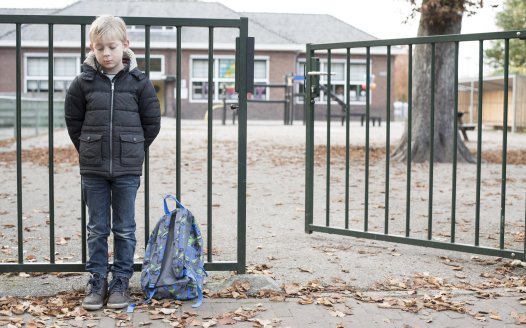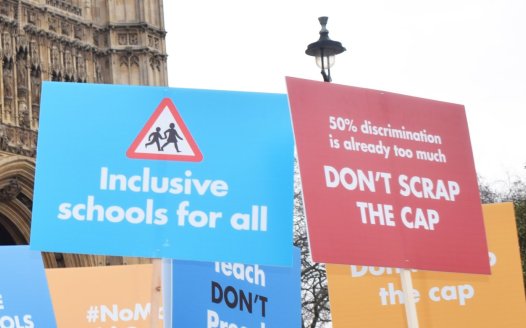Faith schools “most socially selective”, report finds
Posted: Thu, 11th Jan 2024
Faith schools admit disproportionately fewer pupils on free school meals, says Sutton Trust.
The National Secular Society has called for an end to religious discrimination in admissions after research revealed faith schools are among the most socially selective schools in England.
The Sutton Trust today published a report on social segregation at secondary comprehensive schools in England, which concluded that faith schools "are consistently more socially selective than non-religious schools".
Nineteen of the top 20 most socially selective schools are faith schools, the Sutton Trust said.
The difference between the proportion of pupils eligible for free school meals (FSM) at a school, and those in the school's catchment area is known as the "FSM gap".
Schools which have a negative FSM gap have fewer FSM pupils in their intake than might have been expected given their catchment area. The more negative the FSM gap, the less representative the school's intake is in terms of socio-economic disadvantage.
The report found that this gap is "significantly larger" (more negative) at faith schools compared to nonreligious schools.
Only pupils from low income families are eligible for FSM, so FSM eligibility is often used as a measure of pupil disadvantage.

The rate of pupils eligible for FSM at faith schools is 20.6%, compared with 22.4% in nonreligious schools. Their FSM gap is -4.3, while at nonreligious schools it is -0.3.
Non-Christian faith schools, which account for 6.5% of all faith schools, are "considerably more socially selective", the report said. They have an FSM rate of only 15.6% and an FSM gap of -7.4.
Catholic schools also have a large FSM gap, at -6.0.
Faith schools are "over-represented" in the top 500 schools under all attainment methods, the report said. Although they represent only 19% of all comprehensives, they constitute 29% of the top 500 schools on Progress 8 scores, and 34% on Attainment 8 scores.
Progress 8 indicates how much pupils improve compared with expectations, while Attainment 8 scores reflect the school's average academic performance.
The combination of high performance and large FSM gap suggests faith schools "are more likely to be socially selective than non-religious schools", the report said.
This is true even though faith schools have a larger geographical catchment area compared with nonreligious schools, due to their ability to select pupils based on their parents' religion. These discriminatory admissions have been widely criticised, including by the NSS and the United Nations Committee for the Rights of the Child.
The report said Catholic schools appear "on average to be the most socially selective", with the largest FSM gap in the top 500 schools for Progress 8 and Attainment 8.
The report recommended that faith schools should "take particular care to ensure their criteria are not contributing to socio-economic inequalities access".
Faith groups have consistently lobbied against attempts to reduce their ability to select pupils based on religion. They include the Catholic Church, which has even lobbied to expand its power to religiously discriminate in admissions by campaigning against the 50% cap on faith-based admissions at new academies.
The Sutton Trust published similar research in 2017, which also found faith schools to be more selective than nonreligious schools.
Research from the London School of Economics last year found faith schools admit fewer pupils with special educational needs and disabilities.
They are also more ethnically segregated and restrict choice for many families.
In September Labour Party leader Keir Starmer said he would be "even more supportive of faith schools" than the current government.
Faith-based admissions "must be shown the door"
NSS head of campaigns Megan Manson said: "We are not surprised by these findings.
"They've confirmed what's long been known: faith schools socially segregate our children by taking fewer pupils from disadvantaged families.
"The perception that faith schools perform better can be explained by the simple fact that their faith-based admissions lead to the exclusion of children who need the greatest support.
"There is no moral, educational or social justification for allowing faith-based admissions to continue. They must be shown the door."
End religious discrimination in school admissions
Our schools shouldn't select pupils based on faith. Join our campaign.









